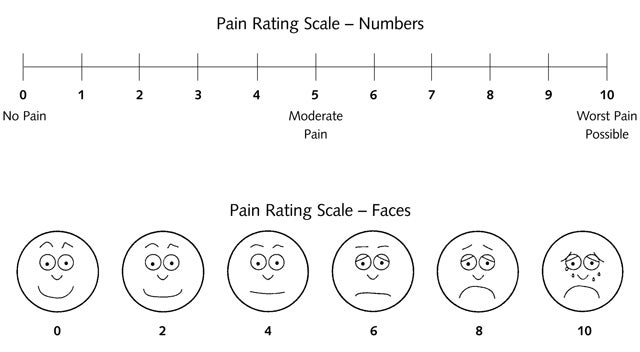Managing Your Pain

Your comfort is a priority during your stay at WakeMed. We believe pain management is an important part of quality patient care. In most cases, pain can be relieved or greatly eased. It may not be possible to completely relieve your pain. However, we will work together to make you as comfortable as possible.
Our Approach to Pain Management
You, your family and your health care providers (nurse, doctor, therapist, case manager) are all important members of the pain management team. Some patients are unable to communicate about their pain. In these situations, we work closely with family members to provide effective pain management.
What to Expect
As a patient at WakeMed, you have the right to:
- Receive information about pain and pain relief methods.
- Receive information about risks of pain medications.
- Have concerned doctors, nurses, therapists, pharmacists and other caregivers who are committed to assessing, preventing and treating pain as best they can.
- Be protected from adverse effects of pain medications.
What You Can Do
- Ask your doctor or nurse what to expect about pain and pain treatment.
- Discuss pain relief options with your doctor and nurse.
- Work with your doctor and nurse to develop a pain treatment plan.
- Ask for pain relief when pain first begins.
- Tell your doctor or nurse if you have entered into a pain management contract or treatment plan with another health care provider.
- Tell your doctor or nurse where it hurts; describe the pain, what makes it better or worse and how it affects you.
- Tell your doctor or nurse if your pain is not relieved.
- Tell your doctor or nurse if you have any concerns about taking pain medications.
- Tell your caregiver how well pain treatments have worked for you in the past.
Measuring and Monitoring Pain
Narcotic pain medications, such as opioids, are often used to control pain, but they also have a sedating effect. Patients can become overly sedated and suffer breathing problems.
Because over-sedation is possible, we will watch you closely. Your caregivers will also awaken you to check your sedation and pain. We encourage patients and/or their families to immediately notify the nursing staff if the patient has a drug reaction, difficulty breathing or snores.
At WakeMed you will be asked to help the doctors and nurses measure your pain using a pain scale.
Methods of Managing Your Pain
Pain can be controlled with medicine, other treatments or a combination of both. You and your health care providers will decide what works best for you.
Treatments include:
- Position changes
- Relaxation or strengthening exercises
- Guided imagery, meditation, music, prayer
- Pain medications
- Oral medications such as pills or liquids
- Suppositories
- Injections (shots)
- IV (tube) in your vein
- Injection into a nerve pathway
Pain treatment has limits and side effects. Your health care providers will discuss them with you.
Facts about Pain Treatment
- There is little risk of addiction when medications are prescribed and taken as directed.
- Most side effects from pain medications can be managed. Nausea, drowsiness, itching and most other side effects from morphine and similar drugs only last a few days and may be relieved with medicine. Constipation can usually be managed with laxatives, fluid intake and the right diet. Talk to your doctor, nurse or pharmacist if you experience any side effects.
- If you act quickly when pain starts, you can often prevent it from getting worse.
Pain treatment will continue to be important in your recovery after you return home. Contact your doctor immediately if your pain is not being controlled or if you are having problems following your pain management plan. Be sure to follow your prescription instructions. Do not change your dose without talking to your doctor.
